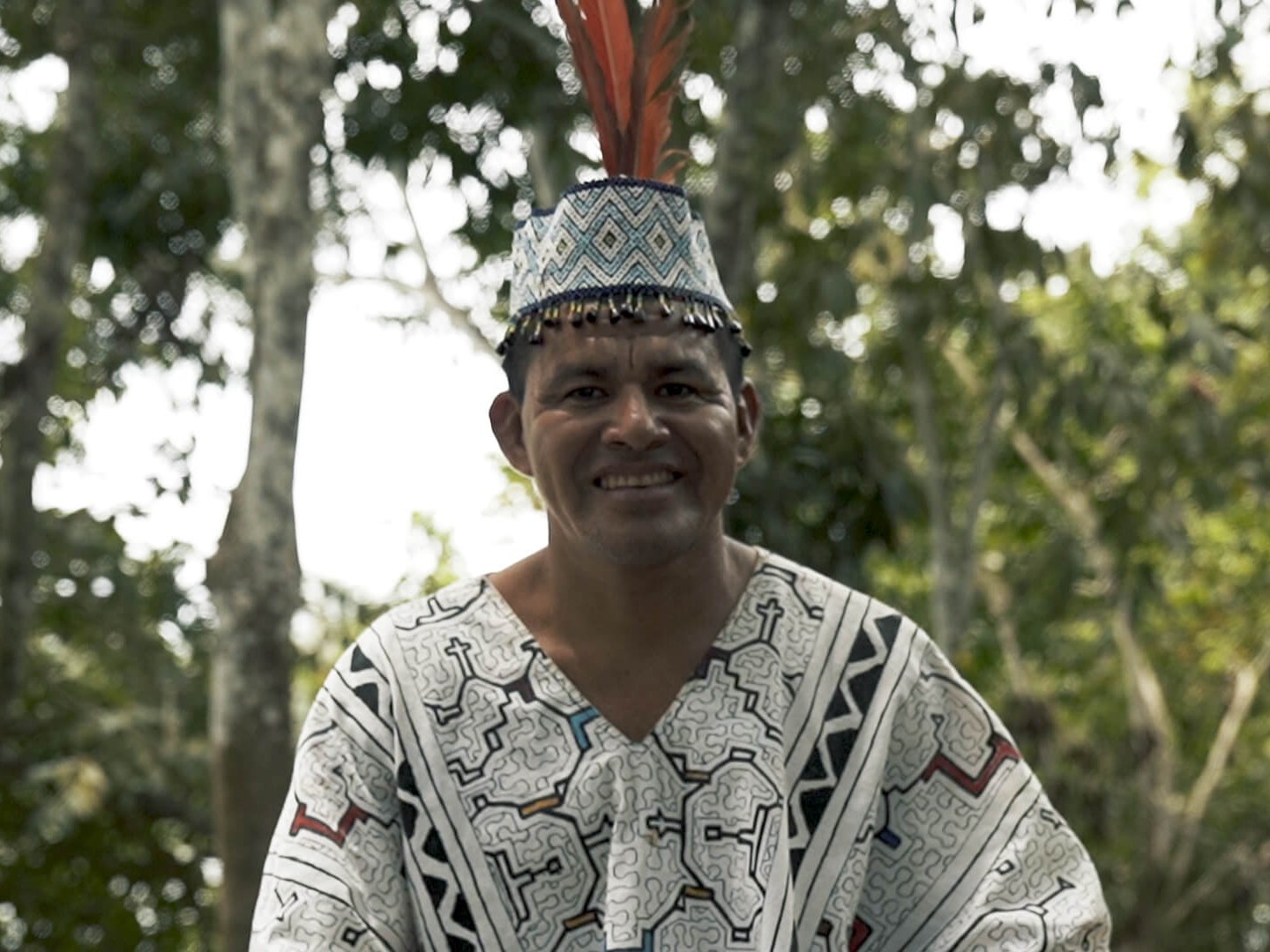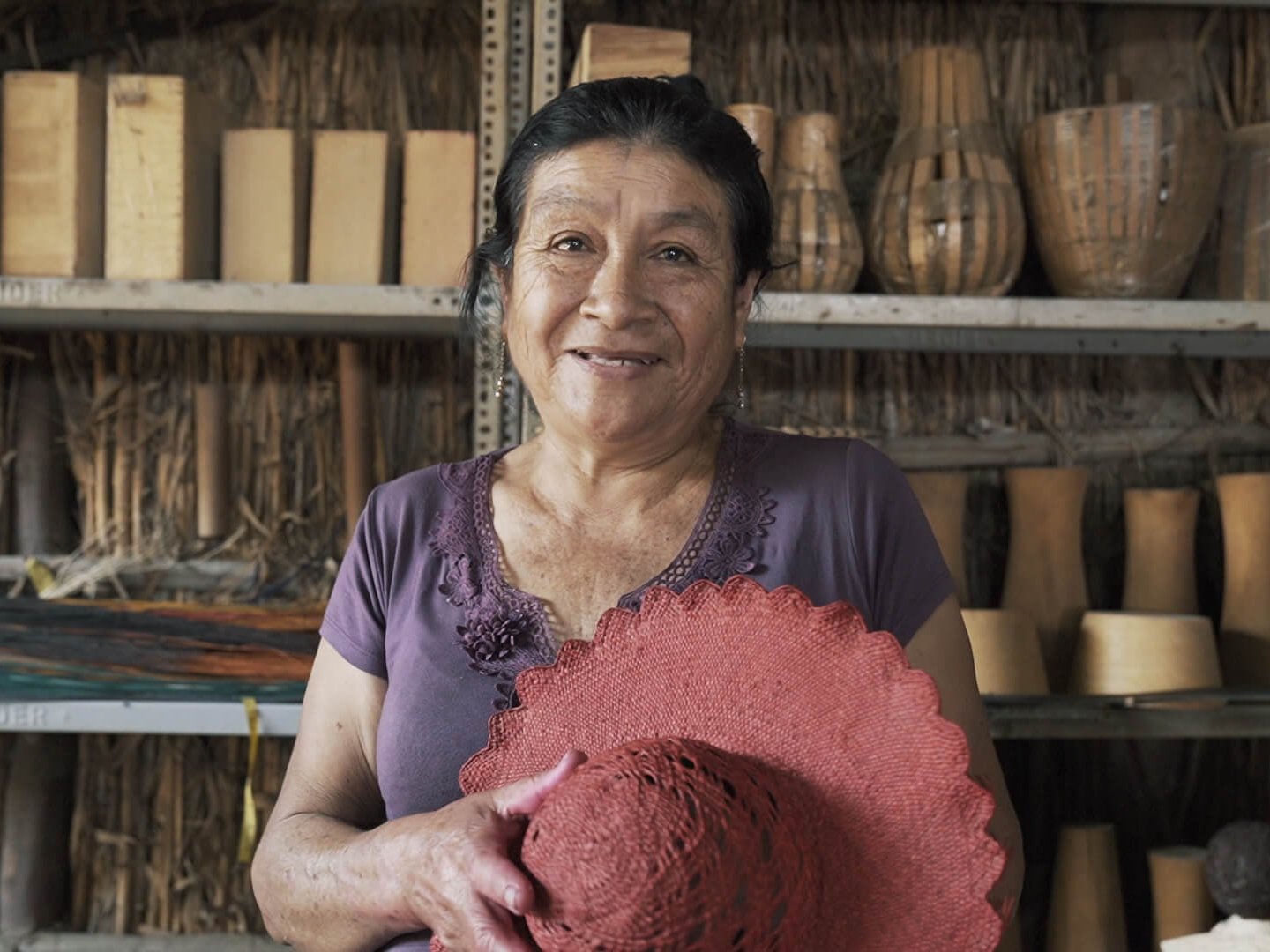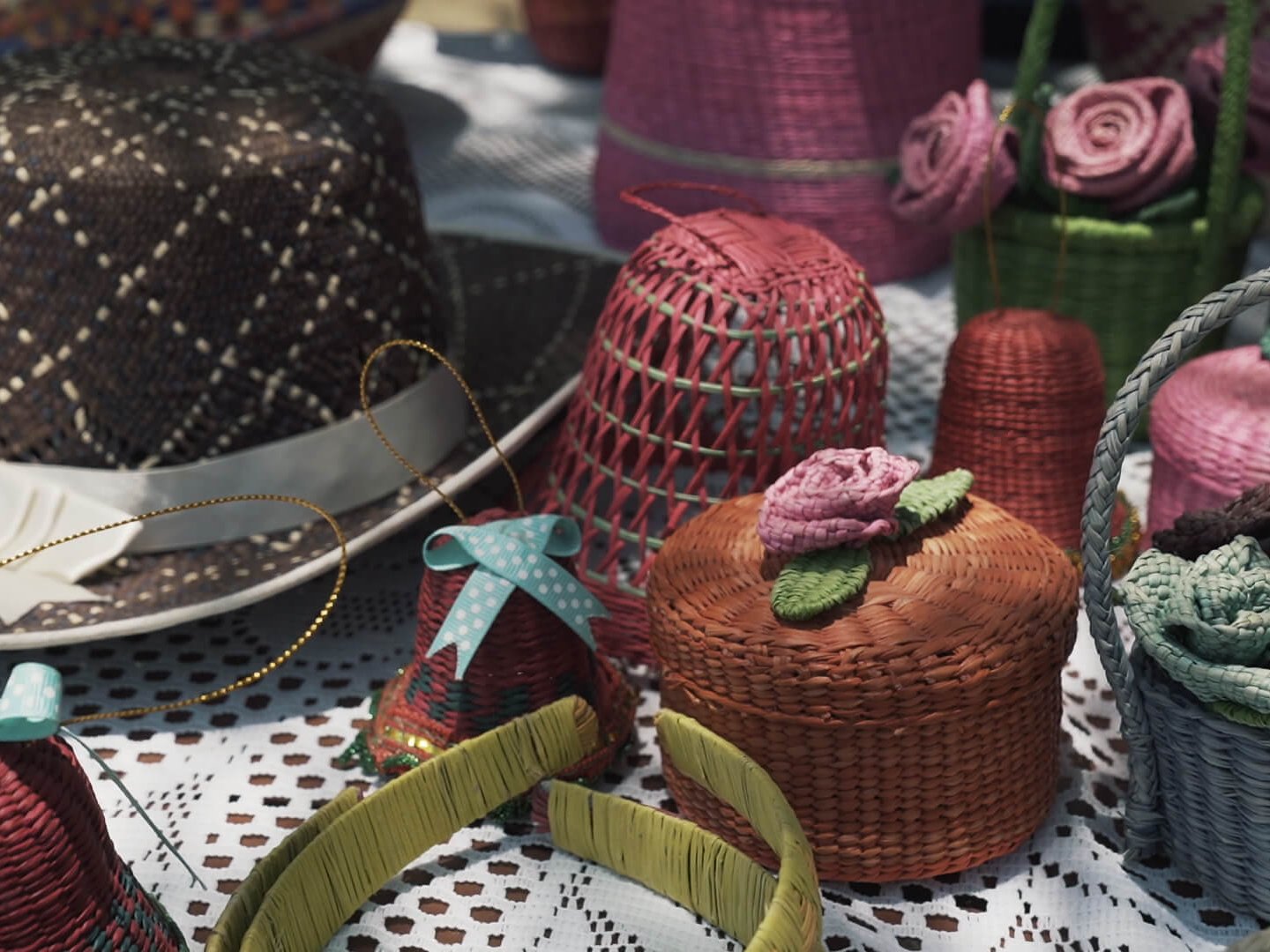Leia em português.
Over 29% of Brazil’s adult population does not have access to a bank account, with women representing 59% of this total. In these circumstances, a community bank, where local bankers interact with customers from the area, can make a big difference.
B anco União Sampaio has no other branch in the Jardim Maria Sampaio community, which is in the low-income Campo Limpo neighborhood of São Paulo in Brazil. It operates from a small room inside a women’s community center. There are no revolving doors and metal detectors – typical features of financial institutions. Although a typed sheet of paper is the only sign of a cashier window, União Sampaio has already helped thousands of people in the region with micro-credit loans.
“The Sampaio (Bank) has helped me several times. The other day I needed to get prescription glasses and did not have the money to buy them. I came here and they helped me,” says Sonia Dagmar Levino, 69.
Levino tells us that the glasses she bought with the loan meant she could take a course to learn how to sew, as well as repair sewing machines. Now she not only sells homemade rugs, but also makes money fixing the machines.
Banco União Sampaio was created in 2009, with the support of the University of São Paulo’s (USP) Technological Incubator for Low-Income Cooperatives (ITCP-USP). It issues its own ‘social’ currency, the Sampaio, properly registered with Brazil’s Central Bank and accepted in over 20 establishments throughout Campo Limpo. There are more than 100 social currencies in Brazil, moving over R$6 million (around US$1.4 million) per year within poorer communities.
Among those who accept the Sampaio is butcher Silvestre Rodrigues de Oliveira. He started work in a friend’s butcher shop when he was 14. By the time he was 20, he had opened his own shop – and has run it from the same location for 39 years.
“I was one of the first merchants to accept the Sampaio,” he says, pointing to the ‘We Accept Sampaios’ sign on the back wall of the shop. “I accepted the currency even before they actually printed the bills. It actually increased my business because people use the loan to buy food and I am the only meat shop in the area that accepts the currency. My business increased so much, I was able to renovate my shop.”

Like most community banks, it does not require proof of regular income or assets, just proof of residence within the community.
A study conducted in October 2019 by Instituto Locomotiva shows that over 29% of Brazil’s adult population does not have access to a bank account, with women representing 59% of this total. In these circumstances, a community bank, where local bankers interact with customers from the area, can make a big difference. This makes credit more accessible – particularly to a large part of the Brazilian population that is bankless.
The reason a majority of lower-income Brazilians, including Levino, are reluctant to seek loans from a traditional financial institution, is their high interest rates.
Monthly rates of interest at Banco União Sampaio vary from 0% to 2.5%, while the current market rate for personal loans in Brazil was around 6.19% per month at the beginning of October 2019. Like most community banks, it does not require proof of regular income or assets, just proof of residence within the community.
“With the Sampaio you go do what you have to do; the interest rates are much lower, so you are able to pay it back faster,” explains Levino.

With the country’s economic crisis, most loans are for people to buy basic necessities such as food, medicine, and fuel for cooking.
According to Norina Rinzi Nunes, coordinator of the Banco União Sampaio, in the first eight years of operation, the bank helped over 3,000 people in the community.
The loans range from R$300 (around $70) to a maximum of R$1,000 (around $240) and anyone living in the neighborhood can qualify. When it was implemented, the aim was to lend money to people who wanted to open their own shops or modernize existing ones. Now, she says, with the country’s economic crisis, most loans are for people to buy basic necessities such as food, medicine, and fuel for cooking.
In 2017, the Brookings Institute ranked Brazil second in a list of 26 politically and economically diverse countries making progress in financial and digital inclusion. Banco União Sampaio is part of this success story – it was a finalist in the 2017 Banco do Brasil Foundation for Social Technology Awards.
“There is a big part of the community that knows that when they are in (financial) difficulties, they can come here and we can help them; they will find support,” says Nunes.
Lise Alves is a freelance writer based in Brazil.
Photography by Sarita Reed.
For more on identity in a digital age, join our Facebook group.





